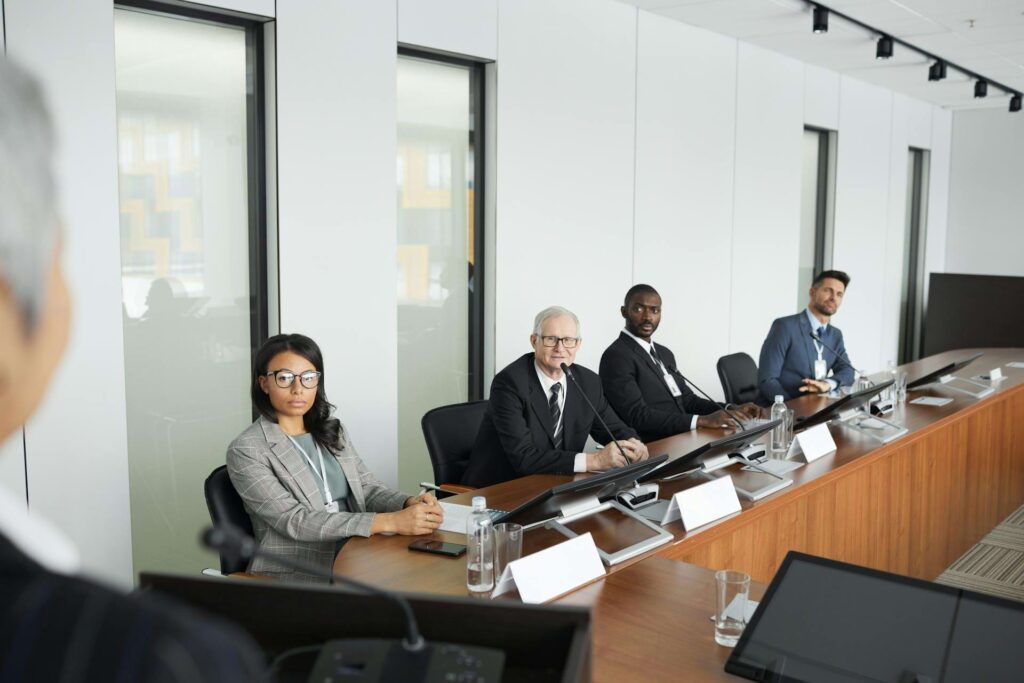A whistleblower complaint can be the start of an investigation. It differs from a regular employee complaint when:
- The person uses an official hotline or reports a problem to a senior manager, officer, auditor or any other individual with the power to take action
- The problem is more likely to affect the public
- The complaint encompasses other people’s concerns as well
- The person may not be employee of the company but rather an external stakeholder
If you received a whistleblower complaint, it is likely that more complaints are likely to follow. It is important to look into the report as quickly as possible to minimise any possible damage. In the past few years, there has been a rise in whistleblower complaints, with ASIC receiving 817 of them in 2021.
How to handle a whistleblower complaint
If an individual comes forward with a whistleblower complaint, make sure you are ready to take the process one step at a time. While a fast response is ideal, a rash response is not. Here are a few steps you need to consider:
- Documenting
- Prioritising
- Preparing to investigate
Documenting
If someone makes a whistleblower complaint, all the details should be documented and the company will need to check whether similar complaints have been submitted. This will help create a more accurate picture of the issue at hand, as it might not be a one-off problem. Looking at past whistleblower complaints can help create a timeline of when the issue started and how it has progressed. This is especially important when a past whistleblower complaint was not taken seriously, the response was lacking, or an investigation was inconclusive.
Documentation will also be necessary at all stages of the complaint-handling process as the organisation will need a trail of the actions it took and all the information they have obtained. Documenting the steps taken after a whistleblower complaint has been submitted is probably the most important thing a business can do. A case may lead to external proceedings, legal ramifications and trouble with authorities. Adequate documentation can protect the entity from further harm as it can show that the investigation took all reasonable action to look into the issue and their decision-making is backed by facts rather than assumptions.
Prioritising
Once all details of the whistleblower complaint have been documented, the employer will need to determine the level of severity. This will help them decide how quickly they must act and how similar complaints compare. Usually, whistleblower complaints are given higher priority but this should not be the default.
Preparing to investigate
A whistleblower complaint can indicate that a problem within a business can cause harm to the company itself as well as the public and its stakeholders. An investigation into the issue is the best way to get more evidence and uncover the extent of the problem, as well as the people involved.
- Plan the investigation
- Select the right team
- Gather information
- Read through the investigation report
- Take action
Plan the investigation
Going into an investigation, it can be hard to know what to expect. Goals can help the process run smoother, set realistic timelines and allow individuals to check in and evaluate the progress of the investigation. An investigation plan creates a structured approach to minimise human errors and the possibility of skipping steps. As part of the planning step, employers may choose to assign each employee a certain role. Someone may be responsible for contacting the employees and informing them of the next steps, while another team member may be given the responsibility of finding the right investigator.

Select the right team
At this point, the company should have broken down the issue and reviewed the allegations so they could decide who would be the right investigation team for the job. A few things to consider include:
- Experience
- Budget
- Timelines
- Bias
An experienced investigator or investigation team can make the whole process run smoother and deal with the whistleblower complaint in a more professional manner. The budget may pose some restrictions on who the organisation chooses and the time available also needs to be taken into account. In a whistleblower investigation, an external investigator is recommended as an internal professional may seem biased and may also be part of the issue.
Gather information
As the investigators work on determining the right investigation methods, prioritisation, and their own delegation of tasks, the business can inquire about what type of evidence they need to provide.
A whistleblower complaint can be a bit tricky to navigate. The individual may wish to remain anonymous but that may not be possible. To ensure that the investigation is carried out as effectively as possible, the team will need to speak with the whistleblower to obtain more details. The entity will need to protect the whistleblower from retaliation and ensure that they feel safe with disclosing more information. The way the whistleblower is treated during the investigation, the confidentiality and safety that surround the case, all play a critical role in more employees speaking up in the future.
To gather more information, the team should find out who is involved in the misconduct that is carried out. Then they can conduct interviews with different individuals separately and ask them open-ended questions to establish credibility and an accurate representation of events. The investigation team will also look at other types of evidence, such as:
- Emails
- Financial records
- CCTV footage
- Safety records
- Training history
- Digital media
- Contracts
- Access records
- Medical reports
The more direct evidence they are able to collect, the more successful the investigation will be.
Read through the investigation report
But what is a successful investigation? A successful investigation can mean a lot of things but to keep it simple, it is a process where there is the right amount of evidence that can lead to an accurate outcome. An investigation that reaches an outcome fairly and listens to all sides, only takes into consideration facts and looks at the bigger picture can be considered a successful investigation.
Once the investigation team has analysed all information carefully, it will be time to write an investigation report. This document will outline the issue, who are the people involved, the actions taken by both the investigators and the company and a list of the evidence that was provided.
The next steps really depend on how severe the issue is. The case may move externally to the government bodies and lead to a legal court case. In another scenario, the employer may be able to read through the recommendations provided in the report and take action based on those.
Take action
With the investigation report finalised, the employer will need to take action. A whistleblower complaint is usually made for more severe issues which means that company stakeholders might be faced with more serious outcomes.
The organisation may need to work with legal counsel to decide on the right path going forward, but the results of the investigation should be communicated to the employees involved. From there, staff may need to be fired and may be subject to legal penalties or even jail time. Another investigation by an external party might also be necessary. In a less severe scenario, an employee may need to be retrained or suspended temporarily.
Future whistleblower complaints: Create an action plan
A whistleblower complaint can be helpful in warning the business about a potential issue they have not noticed. But would it not have been better if the issue had not existed in the first place? That is, of course, easier said than done.
When concluding a whistleblower complaint investigation, it is important to conduct a root cause analysis to determine the factors that caused the whistleblower complaint and ensure they do not happen again. An investigation cannot be considered successful unless it deals with the factors that lead to the investigation in the first place.
It will be worth retracing the steps and checking where the company went wrong. There are a lot of learnings that can come from every whistleblower complaint. The policies and procedures may need to be reviewed, the workplace culture may need to change and the organisation may discover gaps in training and safety measures.
Are leaders held accountable? How well do they manage their staff? Are they ethical individuals who have earned the staff’s trust? Quite a few questions will pop up, and the organisation may jump to fix the issue before the investigation is finalised. That is not always recommended. Sometimes, it is better to let the investigation end and then look at the bigger picture, as the next decisions will be made with better information.
Call for more whistleblower complaints
The ultimate goal is to have a problem-free organisation. However, without a strong whistleblower program or, at the very least, an anonymous employee complaint hotline, that goal might be hard to achieve. Younger generations are less likely to come forward if their identity is revealed right away as they are scared of the impact this will have on their career.
At Polonious, we understand the importance of providing employees with the opportunity to make whistleblower complaints at any time with complete confidentiality. We provide our clients with a trained team of specialists who are there to listen and protect the future of employees and the company. Our whistleblower hotline has global coverage, an average answer speed of 30 seconds and is securely encrypted.
On top of our whistleblower hotline, we also help our customers handle their whistleblower complaints. Polonious supports investigators at every step of the process, enabling them to create their own workflows, automate manual tasks and store evidence safely.
If you want to learn more, book a demo with us today.
How useful was this post?
Click on a star to rate it!
Average rating 0 / 5. Vote count: 0
No votes so far! Be the first to rate this post.
Let's Get Started
Interested in learning more about how Polonious can help?
Get a free consultation or demo with one of our experts
Eleftheria Papadopoulou
Eleftheria has completed a Bachelor's of Business with a major in Marketing at the University of Technology Sydney. As part of her undergraduate studies she also obtained a Diploma in Languages with a major in Japanese. Following her graduation she has been working as a Marketing Coordinator and Content and Social Media Specialist.
Eleftheria is currently finishing her Master in Digital Marketing.




